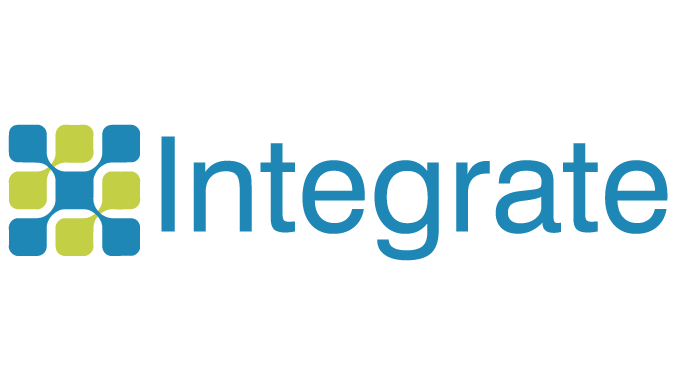About JA
Summary
INTEGRATE has the overall objective to improve the understanding and implement integrated activities related to early diagnosis of HIV, viral hepatitis, TB and STIs and linkage to prevention and care in partner countries.
Since HIV, Viral Hepatitis, TB and STIs are cross-border health threats that affect vulnerable populations disproportionately and, thus, require personalized interventions, a multidimensional approach is needed to reduce the public health burden and determine the optimal profile of interventions to be implemented.
INTEGRATE will map and utilize existing effective tools that were developed to reduce transmission, optimize early diagnosis and linkage to care in one or more disease areas. Through a peer-review process, tools that are complementary for other diseases will be identified and the need for their adaptation or further innovation will be evaluated. To this end, INTEGRATE will provide a platform to facilitate the review of these tools and their cross-linking abilities, evaluate the need for adaptation or further innovation and employ multidimensional approaches to identify and implement the optimal profile of approaches.
INTEGRATE supports the implementation of the Commission Communication on ‘Combating HIV/AIDS in the European Union and neighboring countries’ and the ‘Action Plan on HIV/AIDS in the EU and neighboring countries’ by ensuring better preparedness across the EU and by identifying innovative evidence-based testing and prevention tools to reduce new cases of HIV, viral hepatitis, TB and STIs in priority groups.
Structure
Integrate Joint Action is divided in 8 Work Packages. A brief description of each Work Package is provided below:
This WP will ensure coordination of the activities through timely implementation and reporting.
WP2 will plan and conduct the dissemination communication and knowledge management activities. It will provide the means for discussion, dissemination and knowledge sharing of the project’s activities and outputs not only within the Consortium but to all stakeholders, relevant projects and initiatives. A multi-stakeholder Conference for HIV, viral hepatitis, TB and STIs will also be the focus of the WP2 effort.
WP3 will develop an evaluation plan for the JA process, output and outcome/impact indicators in order to monitor and report on the progress of the Joint Action’s implementation. To this end, yearly evaluations will be prepared and two external evaluations will be deployed.
WP4 will develop a sustainability plan for the Joint Action and will facilitate the integration of deliverables and results of the project. Moreover, WP4 will develop and implement pilot actions for the monitoring of patient experience and linkage to care in order to identify best practices and evidence-based policy recommendations.
WP5 aims to facilitate the integration of testing activities targeting the four diseases and optimize the testing of key and at-risk populations. Within WP5 the existing tools will be further developed and expanded to increase testing and linkage to care and support the expansion of home sampling and home/self-testing programmes in order to reach the vulnerable populations and ensure the linkage to care of self-testers.
WP6 will identify the indicators and adapt the existing data collection/M&E tools to assess the impact of the European Testing Week. It will also describe the various methods and drivers as well as the barriers for the integration of testing and linkage to care data for HIV, STIs and hepatitis B and C into national surveillance and M&E systems. Pilots for the integration of testing and linkage to care data into national surveillance and M&E systems from community based voluntary counselling and testing (CBVCT) facilities will be conducted.
WP7 will improve the use of ICT tools and Partner Notification by adapting and piloting innovative information and communication technology programs so as to broadly disseminate and deliver prevention information, education and support to at-risk populations.
The final WP aims to identify the training needs and priorities on the integration of HIV, viral hepatitis, TB and STIs early diagnosis and linkage to care in the project’s partner countries. As part of WP8, three regional workshops on the WP outcomes that are relevant for health care professionals, civil society and public health institutions across the EU Member States will be conducted.
Project's General Information
INTEGRATE runs from September 2017 to August 2020 and is funded by the European Union’s 3rd Health Programme for Research and Innovation.
Project Acronym: INTEGRATE
Project Full Name: INTEGRATE - Joint Action on integrating prevention, testing and link to care strategies across HIV, Viral Hepatitis, TB & STIs in Europe.
Call Identifier: HP-JA-2016 - Quality of HIV/AIDS/STI, viral Hepatitis and tuberculosis prevention and linkage to care.
Work Programme Objective: Increase integrated early diagnosis and linkage to prevention and care of HIV, viral hepatitis, TB and STIs in EU Member States by 2020.
Grant Agreement No: 761319
Estimated Project Cost: 2,499,846.35 €
EU Contribution: 1,999,877.08 €
Duration: 36 Months (Started September 1st 2017)
Coordinator: Centre of Excellence for Health, Immunity and Infections – CHIP
Project description on the CHAFEA website
